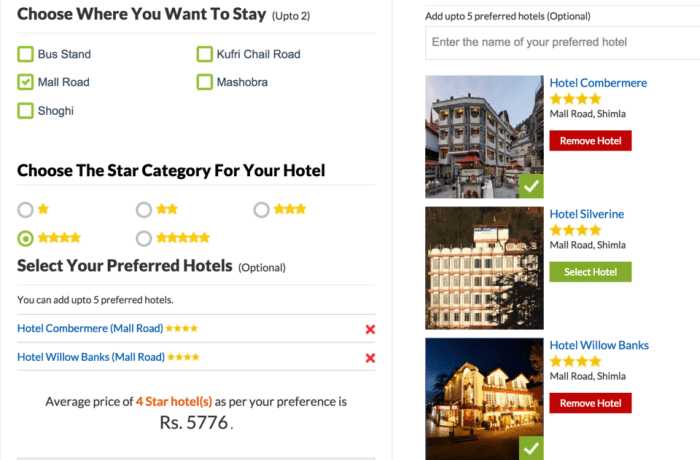How To Use Hotel Price Alerts To Save Big On Travel
How to Use Hotel Price Alerts to Save Big on Travel opens the door to an exciting way to enhance your travel experience without breaking the bank. Imagine being able to snag a dream hotel at a fraction of the cost, simply by using a clever tool designed to watch prices for you. This guide will take you through the essentials of setting up hotel price alerts and making the most of them, ensuring that your next getaway is not only memorable but also budget-friendly.
With the rise of travel technology, hotel price alerts have become an invaluable resource for savvy travelers. These alerts notify you when hotel prices drop, allowing you to book at just the right moment. Whether you’re planning a weekend escape or a long vacation, understanding how to use these alerts can lead to incredible savings and a more enjoyable trip.
Understanding Hotel Price Alerts
Hotel price alerts are a handy tool for travelers looking to maximize their travel budget. These alerts notify users when hotel prices drop for their selected destinations or specific accommodations, helping them snag the best deals. As travel costs can fluctuate significantly, price alerts serve as a practical solution for budget-conscious individuals wanting to save on their trips.The concept behind hotel price alerts is simple yet effective: when travelers set a specific price target for a hotel or a general area, they receive notifications via their chosen platform when prices meet or drop below their specified threshold.
This ensures that they never miss an opportunity for savings.
Benefits of Using Hotel Price Alerts
Utilizing hotel price alerts offers numerous advantages that can enhance the travel experience while keeping expenses in check. Here are some key benefits:
- Cost Savings: By receiving timely notifications on price drops, travelers can book accommodations at significantly lower rates, sometimes saving hundreds of dollars.
- Time Efficiency: Instead of constantly checking prices across various websites, alerts streamline the process, allowing travelers to focus on other aspects of their trip planning.
- Flexibility: Price alerts can be customized to suit individual budgets, preferences, and travel dates, enabling more tailored travel experiences.
- Peace of Mind: Knowing that prices are being monitored can alleviate the stress associated with booking accommodation, allowing travelers to enjoy the anticipation of their upcoming journey.
Several popular platforms provide hotel price alert services, making it easy for travelers to find the best deals. For instance, websites like Kayak, Booking.com, and Trivago offer robust alert systems that notify users via email or app notifications. These platforms not only monitor prices but also provide insights on trends and availability, ensuring that travelers are well-informed when making decisions.
“Taking advantage of hotel price alerts can dramatically change the way you plan your vacations, making travel more accessible and enjoyable.”
Setting Up Hotel Price Alerts

Source: tripoto.com
Setting up hotel price alerts is a straightforward way to ensure you’re always up-to-date on the best deals available for your next getaway. With just a few simple steps and some thoughtful parameters, you can save money and make smarter travel decisions. This guide will help you navigate the process of creating effective hotel price alerts on various travel websites.
Steps to Create Hotel Price Alerts
Creating hotel price alerts is a simple process that can be done on several popular travel booking platforms. Here are the general steps you can follow:
1. Select Your Preferred Travel Website
Choose a reliable website such as Kayak, Google Hotels, or Booking.com. Each platform has its unique features, so exploring them can help you find the one that suits your needs best.
2. Search for Hotels
Enter your desired destination, travel dates, and the number of guests. This sets the stage for your alerts and helps the website tailor the results to your specifications.
3. Set Up Alerts
Look for an option that allows you to set price alerts. This is often available on the search results page. Click on it, and you will be guided through the necessary steps.
4. Customize Your Alert Parameters
Specify key parameters, including the price range, location, and specific amenities you desire. This ensures you receive alerts that are relevant to your preferences and budget.
5. Provide Contact Information
Enter your email address or phone number where you wish to receive notifications. Make sure this information is accurate to avoid missing important alerts.
6. Save Your Alerts
After filling in all necessary details, save your alert settings. You should receive confirmation of your new alert, ensuring that you are all set to receive notifications.
Key Parameters for Effective Alerts
When setting up your hotel price alerts, it’s essential to carefully consider the following parameters to maximize their effectiveness:
Location
Be specific about the area you want to stay in. Whether it’s a particular neighborhood or a city center, precise details help filter irrelevant options.
Price Range
Establish a clear price range that aligns with your budget. Setting this can prevent alerts for hotels that exceed what you’re willing to pay, allowing you to focus on the best deals within your range.
Dates of Travel
Input your exact travel dates to receive alerts tailored to your schedule. Flexible dates may yield different results, so consider this if your plans can be adjusted.
Hotel Type and Amenities
Specify the type of accommodation you’re interested in, such as luxury hotels, budget hostels, or family-friendly resorts. Additionally, highlighting amenities like free Wi-Fi or breakfast can refine your search.
Providing accurate travel preferences enhances the effectiveness of alerts, ensuring you only receive relevant options that meet your criteria.
By using these parameters thoughtfully, you can create hotel price alerts that truly cater to your travel needs, helping you snag the best deals available. Remember, the more precise your parameters, the more tailored your alerts will be, ultimately leading to significant savings on your travel expenses.
Best Practices for Maximizing Savings

Source: tripoto.com
When it comes to traveling, saving on hotel costs can greatly enhance your experience. Understanding how to effectively use hotel price alerts can lead to significant savings. Implementing best practices in setting and managing these alerts ensures you never miss a chance for a great deal on accommodations.
Timing Alerts for Optimal Deals
The timing of your hotel price alerts can play a crucial role in securing the best rates. To maximize savings, it’s important to consider the following strategies:
Set alerts well in advance
Start monitoring prices at least two to three months before your intended travel dates. This gives you an understanding of typical price fluctuations for your destination.
Be flexible with dates
Adjusting your travel dates, even slightly, can result in better prices. Setting alerts for a range of dates allows you to catch the lowest rates.
Monitor off-peak seasons
Prices tend to drop during off-peak travel times. If your schedule allows, consider traveling during these periods and set alerts accordingly.
“Timing is key; the earlier you set alerts, the better your chances of snatching up great deals.”
Frequency of Price Checks Across Platforms
Different platforms can vary significantly in how often they update hotel prices. This variability can impact how frequently you should check your alerts:
Daily checks for dynamic pricing
Some platforms adjust their prices multiple times a day. If you set alerts on these sites, consider checking daily to catch price drops as they happen.
Weekly checks for stable pricing
Other platforms may have more stable pricing patterns. For these, a weekly check may suffice, allowing you to focus on other travel preparations while remaining informed.
Automatic notifications
Utilize platforms that offer real-time notifications via email or app alerts, ensuring you are informed instantly when prices change.
“Staying informed through timely notifications can make all the difference in securing the best rates.”
Prioritizing Alerts for Destinations and Travel Seasons
Not all destinations or travel seasons are created equal when it comes to hotel pricing. Prioritizing your alerts is essential for maximizing savings:
Identify high-demand destinations
For popular cities or events, set alerts for key dates and book as soon as you see a favorable price. These locations often see rapid increases in hotel rates as the date approaches.
Seasonal trends
Research the typical pricing trends for your chosen destination. Some places have predictable high and low seasons, and alerts should reflect these peaks and valleys.
Localized events
Be mindful of local events or holidays that may affect hotel pricing. Setting alerts around such dates can help you avoid inflated prices due to increased demand.
“Understanding the rhythms of travel can guide your alert priorities, saving you money when it matters most.”
Analyzing Alert Notifications
Price alerts are invaluable tools that help unlock the best travel deals. By understanding how to interpret these notifications, travelers can seize opportunities to save significantly on hotel costs. The key is not just to react to price changes but to analyze them strategically, ensuring that every booking is timed perfectly for maximum savings.Interpreting price changes within alert notifications involves looking at several factors.
A sudden drop in prices could signal a limited-time offer or a seasonal adjustment. Tracking patterns over time can provide insight into whether a price is genuinely low or if it’s likely to drop further. It’s essential to pay attention to the percentage decrease in price, as well as the historical pricing trends for your desired destination.
Guidelines for Booking Based on Alert Notifications
Understanding when to book is crucial for optimizing savings. The following guidelines help navigate booking times effectively based on alert notifications:
- Immediate Action on Significant Drops: If an alert indicates a price drop of 20% or more, consider booking right away. This often reflects a limited-time promotion.
- Monitor Patterns: If prices drop significantly over consecutive days, it could mean they are on a downward trend. However, if prices fluctuate without a steady drop, it might be wise to wait.
- Avoid Last-Minute Bookings: Prices tend to spike in the days leading up to peak travel dates. Use your alerts to book several weeks in advance, especially during holidays or events.
- Check for Additional Discounts: Sometimes hotels offer discounts on top of price drops, such as loyalty points or additional coupons. Always check the final price before booking.
- Evaluate Time of Year: Prices may drop during off-peak seasons. Use alerts to identify these trends and plan trips accordingly.
For a more structured approach, the following table Artikels how different price drops correlate with optimal booking timing:
| Price Drop (%) | Recommended Booking Time | Notes |
|---|---|---|
| 0-10% | Monitor | Prices might not be low enough to warrant action; keep observing. |
| 10-19% | Consider Booking | Monitor for further drops; evaluate the urgency of your trip. |
| 20%+ | Book Immediately | Strong indication of a temporary deal; act quickly. |
| 30%+ | Book with Confidence | Highly likely to be the best rate; seize the opportunity. |
“Timely analysis of price alerts transforms your travel budget, enabling adventures you thought were out of reach.”
Avoiding Common Pitfalls
When it comes to using hotel price alerts, even the most seasoned travelers can stumble into common traps that diminish the effectiveness of this money-saving tool. Understanding these pitfalls can help you navigate your travel planning with greater confidence and ensure that you get the best possible deals without unnecessary stress.One of the key mistakes travelers make is becoming overly reliant on price alerts; this can lead to missed opportunities.
To maximize your savings, it is essential to maintain flexibility and a proactive approach in your booking strategy. Additionally, cross-referencing prices with other sources ensures that the deals you receive through alerts are genuine and competitive.
Common Mistakes When Using Price Alerts
Awareness of typical mistakes can guide travelers toward making more informed decisions. The following points highlight these common issues and provide insights on how to avoid them:
- Ignoring Price Trends: Relying solely on alerts can hinder your awareness of broader price trends. Regularly monitor prices to understand peak and off-peak times for your destination.
- Waiting Too Long: While price alerts notify you of drops, delaying your booking can result in lost opportunities, especially for popular destinations where prices may rebound quickly.
- Neglecting Other Booking Sources: Confirming deals through multiple sources, such as travel comparison websites and direct hotel sites, is crucial for validating the alerts you receive.
- Overlooking Hidden Fees: Sometimes, the lowest price might not be the best deal. Always check for additional fees that could significantly increase your total cost.
- Being Too Rigid with Dates: A fixed travel schedule can limit your options. Being flexible with your travel dates can help you capitalize on better deals that may arise.
“Flexibility is key to securing the best travel deals; sometimes, shifting your trip by just a few days can make a significant difference in pricing.”
Maintaining a balanced approach while using hotel price alerts will help ensure that you not only find the best deals but also enjoy a stress-free booking experience. By combining alerts with diligent research and flexibility, you can navigate the world of travel more effectively.
Advanced Techniques for Experienced Travelers
As an experienced traveler, leveraging advanced techniques can significantly enhance your ability to save on hotel accommodations. Combining hotel price alerts with other travel deals, utilizing technology, and engaging with social media can lead to remarkable savings that enhance your travel experience.
Combining Hotel Price Alerts with Other Travel Deals
Maximizing savings involves more than just monitoring hotel prices. Experienced travelers can enhance their strategies by integrating various travel deals. Combining hotel price alerts with flight deals, car rental discounts, and package offers can yield substantial overall savings.
- Bundle Deals: Look for travel packages that combine flights and hotels. Websites like Expedia and Travelocity often offer discounts when you book multiple services together. This can be particularly beneficial when paired with hotel price alerts, ensuring you book at the best possible rate.
- Credit Card Rewards: Utilize travel rewards credit cards that offer points for hotel stays. When a hotel price alert triggers a deal, pay for your stay using points to maximize your savings.
- Membership Discounts: Join hotel loyalty programs that offer exclusive promotions and member-only rates. Combine these offers with price alerts to secure the best deal available.
Utilizing Mobile Apps and Browser Extensions
Technology is a powerful ally in your quest for travel savings. There are several mobile apps and browser extensions that can help you stay updated on hotel prices effortlessly.
- Mobile Apps: Apps like Hopper and HotelTonight not only send you alerts for price drops but also provide insights on the best times to book. These apps often feature user-friendly interfaces that make real-time updates accessible on the go.
- Browser Extensions: Extensions such as Honey or Rakuten can automatically apply coupon codes when booking hotels, ensuring you don’t miss out on additional savings. They often alert you to price drops and special offers directly through your browser.
- Push Notifications: Enable push notifications on your phone for travel apps to receive instant alerts on price changes. This immediacy can be vital when securing a deal that is time-sensitive.
The Role of Social Media in Finding Exclusive Hotel Deals
Social media platforms have become valuable resources for discovering exclusive hotel deals and alerts, often before they reach mainstream booking sites.
- Follow Hotel Chains: Many hotel chains post flash sales and limited-time offers on their social media pages. By following them on platforms like Instagram, Twitter, and Facebook, you can be among the first to know about special promotions.
- Travel Influencers: Engage with travel influencers who share insights on hidden discounts and offers. They often have partnerships with hotels that lead to exclusive deals for their followers.
- Join Travel Groups: Participate in travel-related groups on Facebook or Reddit, where members frequently share alerts about hotel deals and discounts. This community-driven approach can uncover savings not found elsewhere.
Combining different strategies and utilizing technology can transform the way you save on hotel bookings, making travel more accessible and enjoyable.
Case Studies and Success Stories

Source: traveloffpath.com
Travelers around the world are discovering the power of hotel price alerts, transforming their travel experiences by saving significant amounts on accommodations. These real-life examples illustrate how using price alert systems can lead to remarkable deals and unforgettable journeys.Many travelers have shared their success stories, showcasing the effectiveness of hotel price alerts in helping them secure great rates. These testimonials highlight different strategies and approaches, demonstrating that with the right tools, anyone can become a savvy traveler.
Real-Life Examples of Savings
Several individuals have successfully utilized hotel price alerts to enhance their travel plans. These stories not only inspire others to take advantage of similar opportunities but also provide insight into the various ways price alerts can be beneficial. Here are some notable cases:
| Traveler | Hotel | Original Price | Price Drop | Booking Date |
|---|---|---|---|---|
| Sarah Johnson | Grand Riviera Resort | $250/night | $150/night | March 15, 2023 |
| Mark Thompson | Mountain View Hotel | $180/night | $100/night | April 10, 2023 |
| Emily Chen | Beachside Inn | $220/night | $130/night | May 5, 2023 |
| James Mitchell | City Center Suites | $300/night | $180/night | June 20, 2023 |
These examples reflect how travelers can effectively use price alerts to monitor hotel rates and make informed decisions. For instance, Sarah Johnson saved $100 per night at the Grand Riviera Resort, allowing her to extend her stay and enjoy more experiences during her vacation.
“Using hotel price alerts not only saved me money but also gave me the freedom to travel more often without breaking the bank.” – Sarah Johnson
The testimonials from users emphasize the excitement and relief that comes with finding a great deal. Travelers appreciate how these systems simplify the process of planning vacations while ensuring they get the best value for their money.
“I never thought I could afford a stay at such a luxurious hotel until I set up price alerts. It changed my travel game completely!” – Mark Thompson
These success stories encourage others to explore hotel price alerts, showing that the potential for savings is not just a possibility but a reality for many. The stories resonate with a sense of achievement and satisfaction, proving that smart travel choices can lead to both memorable experiences and financial benefits.
Closure
In conclusion, mastering the art of hotel price alerts can truly transform your travel planning. By setting up alerts and staying informed, you can seize opportunities for savings that might otherwise slip through your fingers. As you embark on your next journey, remember to embrace the power of technology to make your travels both affordable and unforgettable.
FAQ Guide
What are hotel price alerts?
Hotel price alerts are notifications sent to you when there is a change in hotel prices, helping you to know when to book for the best rates.
How do I set up hotel price alerts?
You can set up hotel price alerts by visiting popular travel websites and entering your travel preferences, including dates and location.
Are hotel price alerts free?
Yes, most platforms that offer hotel price alerts do so free of charge.
How often do I receive alerts?
The frequency of alerts can depend on the platform and your specified settings; you can typically choose to receive them as they happen or in daily summaries.
Can I set alerts for multiple destinations?
Absolutely! You can set up alerts for various locations and tailor each alert to your specific preferences.
What should I do when I receive a price alert?
When you receive a price alert, review the offer quickly, and if it meets your budget and preferences, consider booking immediately to secure the deal.
Is it necessary to check prices manually if I have alerts?
While alerts are helpful, it’s still a good idea to occasionally check prices manually to ensure you’re aware of any significant changes.





